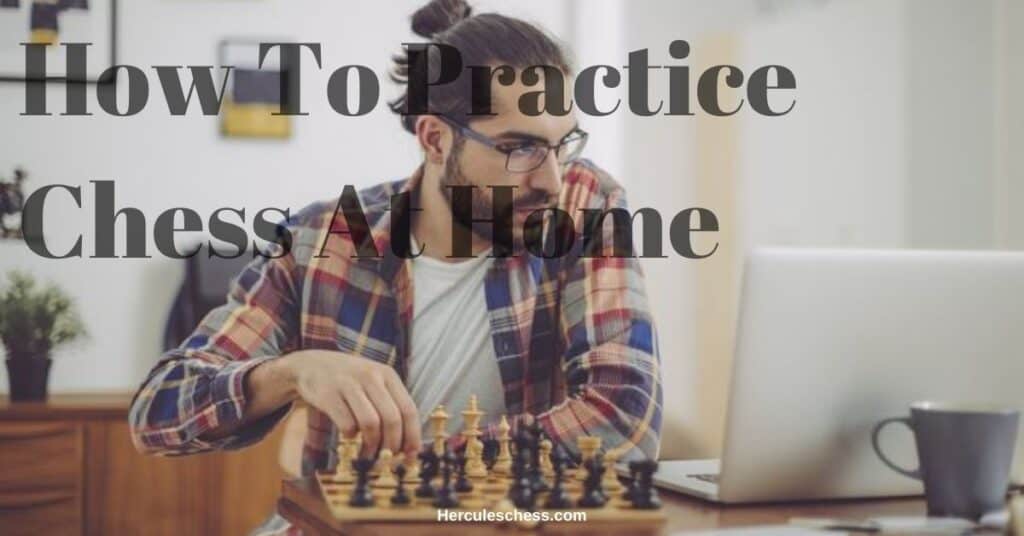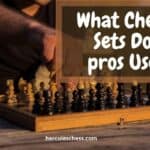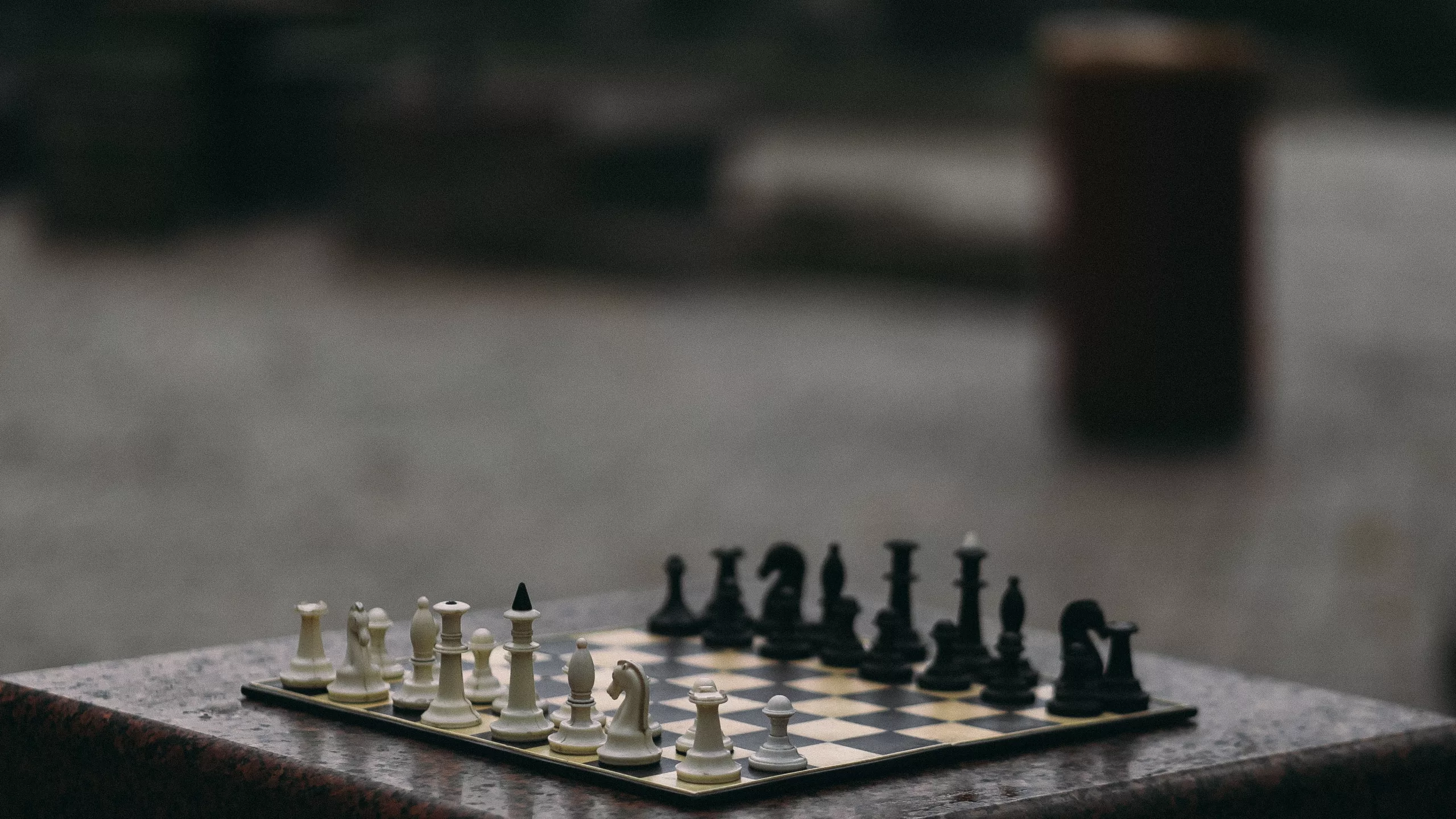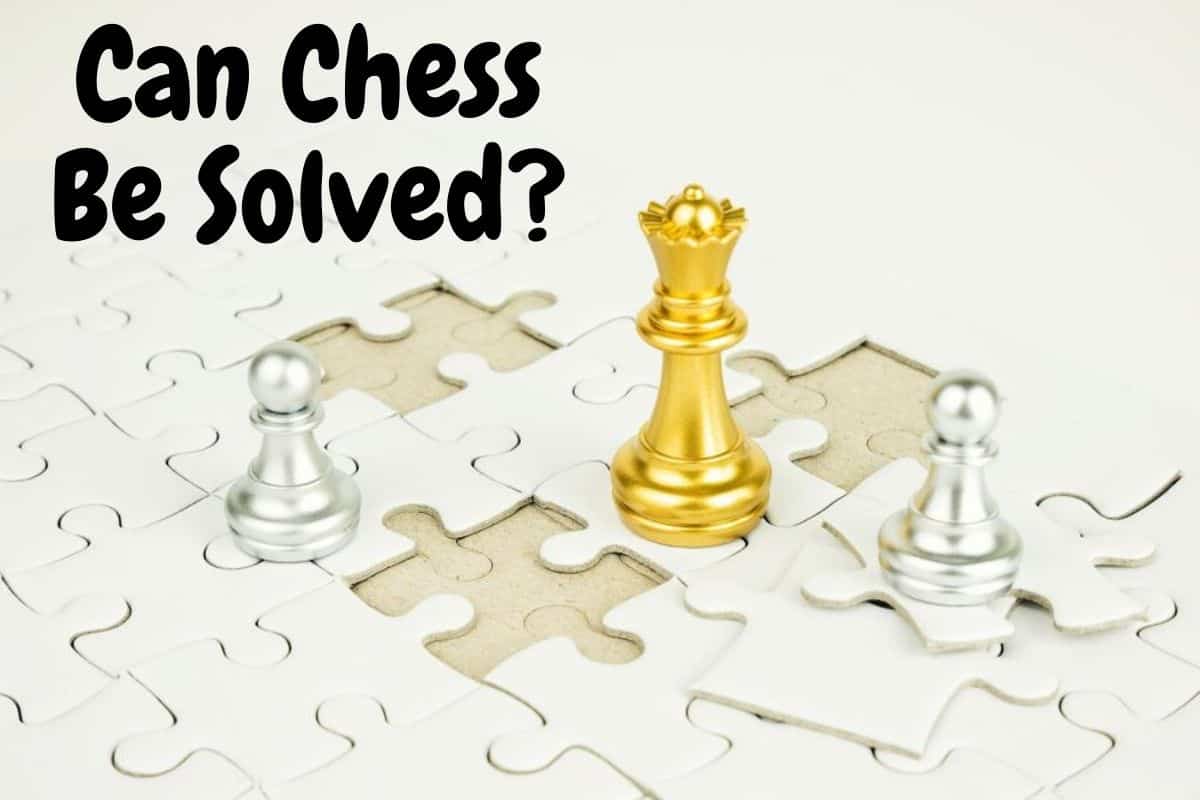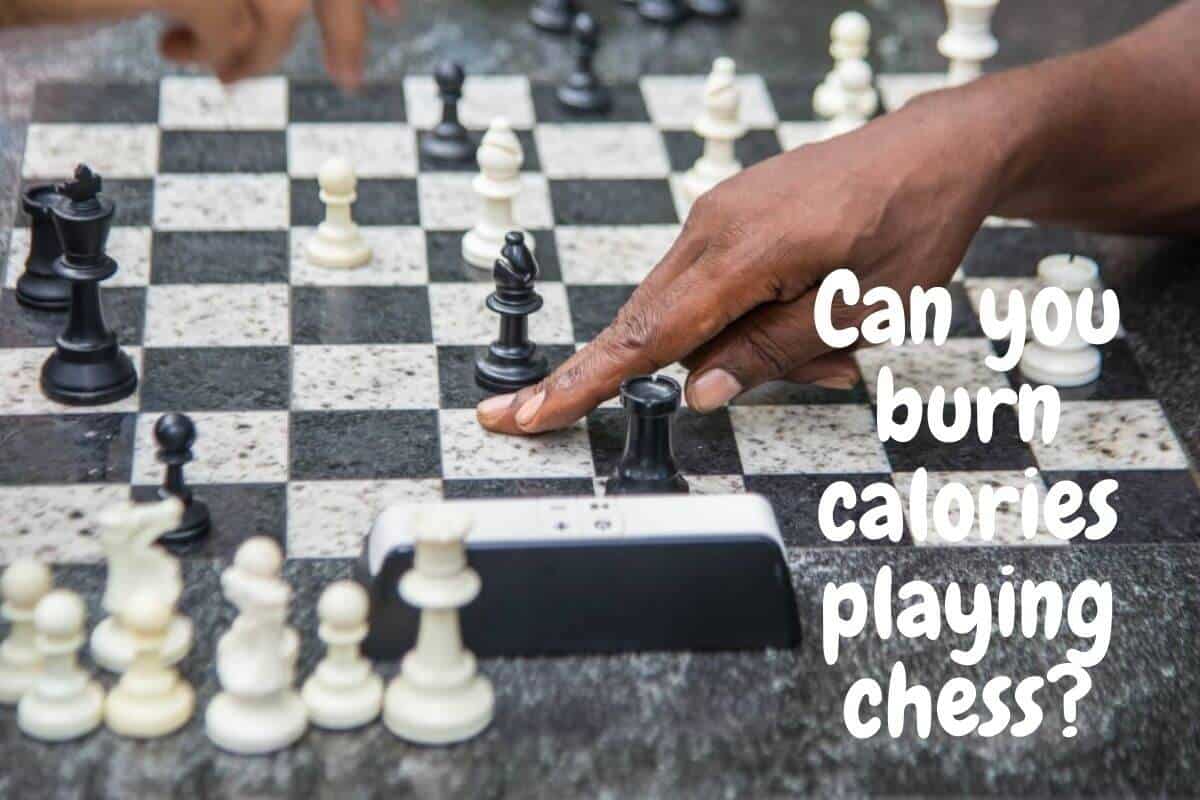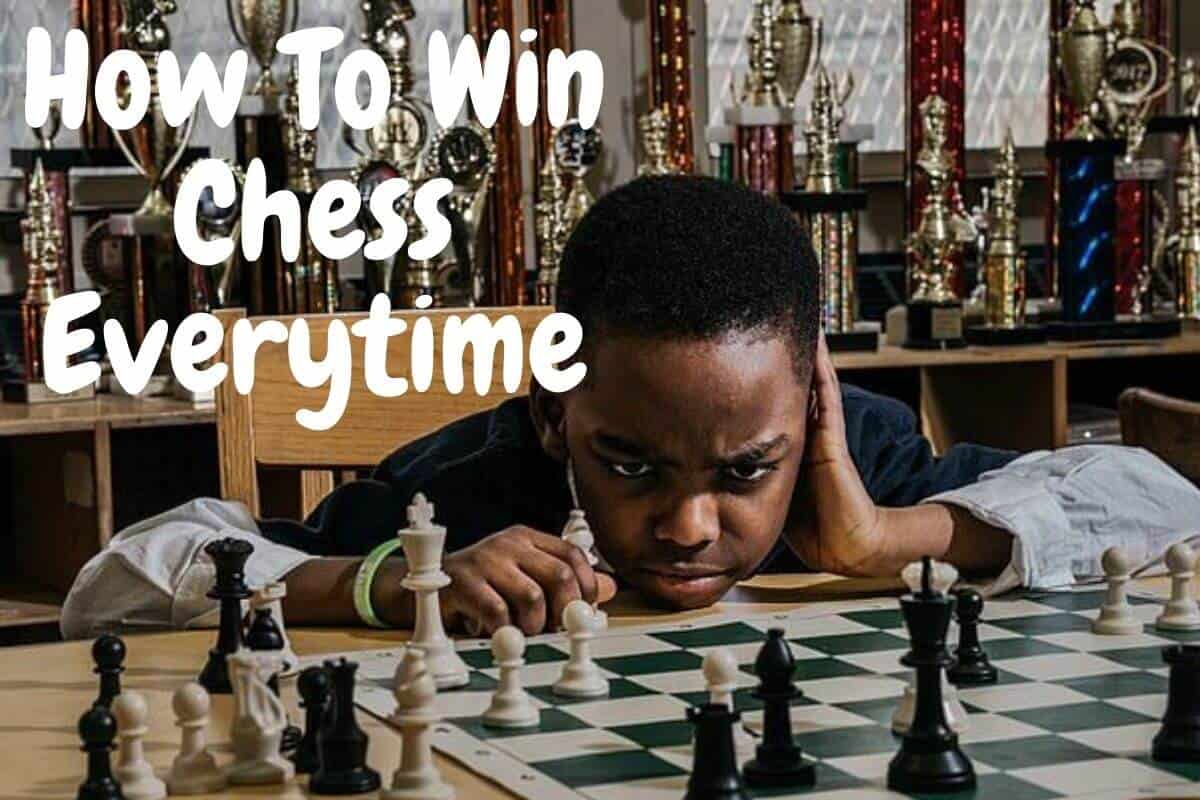Being at home by yourself is actually the best time to learn and play chess. You don’t need a coach nor a playing partner to begin practicing. All you need is the correct training system and you’ll be on your way to becoming a self taught master!
In this article I’ve put together 8 tips that will help you practice chess right from the comfort of your home. Let’s jump right in.
Here is how to practice chess at home:
- Learn from the masters
- Solve 3 daily puzzles
- Play 1-2 practice matches
- Analyze your games
- Get some exercise
- Study positional chess
- Master a few chess openings
- Learn the basics of the endgame
How To Practice Chess At Home
1. Learn from the Masters
“If you want to be successful at chess, it’s best to learn from someone who has already achieved your goal.” When you study the games of top grandmasters, you adapt their strategies and thus you’ll be able to deploy them in your own games. If you are an attacking player, then it’s best you study the games of Mikhail Tal or Magnus Carlsen.
Likewise, if you are a more calm, positional player, then you should study the games of Nimzowitsch or Karpov. Whatever type of chess player you are, you must pick a master and learn to adapt their playing style.
One exercise you can perform at home is to chose a random game from your favorite chess player. Skip to move 20 and setup the position on a chessboard. You should then try to guess the move that was played. I recommend you give yourself 5 minutes to guess the move. Look back on the actual game to see if you were correct.
2. Solve 3 Daily Puzzles At Home
There are many puzzles available online ranging from easy to very difficult. Whenever you are ready to solve chess puzzles, you should always go for the difficult or challenging ones. This is the right thing to do since you want to get the most out of your training. Similarly to our previous exercise, I recommend you setup the puzzle on an actual chess board and set the timer for 15 minutes this time. Here are 3 things to do when solving a chess puzzle:
- Study the position (Notice any tactical element in the game such as loose pieces, pins, unprotected king etc)
- Look for your opponent’s forcing moves and stop them. If none of the forcing moves are threatening then proceed to the next step.
- Select 3 forcing moves that may cause your opponent to respond (checks, captures or attacks)
- Calculate each of these candidate moves carefully and then go for the one that yields a positive verdict.
- If none of these moves help your position/yield a positive verdict, then make a positional move that will develop the activity of your pieces.
Use this exact thought process in your actual games whenever the position is complicated and there is tension on the board.
3. Play 1-2 Practice Matches Daily
These games should be 90 minutes long just like an actual game from a tournament. Some coaches may suggest playing against the computer, but I think it serves no purpose since you will be defeated with ease. It’s best that you play with real people on popular online chess platforms like chess.com or lichess.org.
There are many chess players out there who would love to play a 90 minute long chess game and you can easily find them. You may even call up one of your chess buddies and have them play a match with you, that would be a much better idea. Whenever you find a player online, just make sure they are rated higher than you. It’s best to play with stronger opponents since it forces you to raise the bar and compete at your highest.
Just like in our previous exercise, you should setup the chessboard as if you are playing a real match. Whenever your opponent makes a move online, make the move on the actual chessboard and record it on a scoresheet. Once the match is over, you can proceed to the next step…
4. Analyse Your Games
Analyzing your games after a match is the best way to learn from your mistakes. You won’t be able to make the same mistake twice, and that is how you will make great progress in chess. When you are analyzing your games, its best that you write down the reason for each of your move and where you actually went wrong.
You may use a chess engine to guide you, but be careful NOT to become too entangled and reliant on it. Remember that the chess engine will not tell you why it plays what it plays. It’s up to you to figure that out. If you have to get a chess coach to explain the nature of the chess game, then I highly recommend it.
In concluding, you should always analyse your chess games from start to finish. Click here for a free 30 minute course with GM Igor Smrinov. He will walk you through exactly how to analyze your chess games.
5. Get Some Exercise
Many World Chess Champions advocate the need to be in a good physical condition as chess can be physically exerting after long hours of play. A good blow flow to the head is crucial if we want to maintain concentration for long hours. Magnus Carlsen usually plays football outdoors and he also does his opening preparation on treadmill. Even if you are NOT a big fan of exercising, just go for a 20 minute walk outdoor and do some stretches on the spot. It will really make a big difference.
6. Study Positional Chess
This should probably be at the top of the list. Without proper understanding of positional chess, no amount of puzzles will help you to improve. In a calm and quiet position, you should know where to deploy your pieces so they are most effective. Rooks belong on open files, Bishops need free flowing diagonals, king needs safety and Knights belong on outposts or just a few of the basic understanding of positional chess.
There are many books and classes out there that teaches basic positional understanding. One of the best I’ve came across was from international grandmaster and chess coach, Igor Smirnov. He lays out all you need to know about positional chess in a clear and concise manner. Click here to get the free pdf
7. Master a few openings well
You don’t need to know a flock of openings all at once. You just need to learn and master a few for either color. If you are the White player, all you need to choose is either 1.e4 or 1.d4. You don’t need to learn both, unless you have fully mastered one. If you are the Black player, you should have at least 3 replies to meet white’s 1.e4 or 1.d4 and a few other sidelines. For beginners, I recommend you learn the Nimzo Indian Defense and the French Defense ONLY. Of course there are many other great chess openings, but these two obey the general principles of chess and they score pretty decent results.
Here is a list of the best chess openings for White and Black
When you are ready to practice your openings at home, it’s a good idea to test your knowledge with a few Blitz games.
8. Learn the Basic Endgame theories
Finally on our list is the Endgame, which some players just throw out the window. In my latest article, I explained 10 tips to help you master the endgame, you can go check that out. The endgame is just as decisive as the middlegame and is where weaker players suffer the most. You see, a grandmaster doesn’t even have to outplay his weaker opponent in the middlegame, he can just create a few static weaknesses in the position, trade off the pieces and crush you with knowledge and experience in the endgame.
You could literally suck at middlegame, but because of your knowledge in the endgame, you are able to lure your opponents into the final stage and come out victorious.
It is crucial that you incorporate endgame practice in your training system. There are many endgames puzzles and endgame books that you can take advantage of. But be careful NOT to study the ones that are too complicated like a bishop and knight endgame. Sometimes you will never face such a position in your career.
